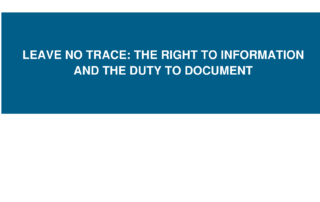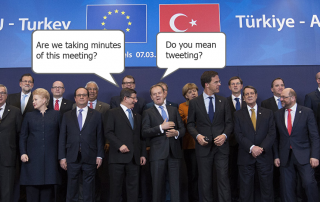Leave no trace: the right to information and the duty to document
Helen Darbishire2018-11-13T10:03:05+01:00This report, Leave No Trace, contains the first comprehensive research into the laws, guidelines, and practices on record keeping across a range of 12 European jurisdictions and the European Commission. It reveals an extremely weak legal infrastructure and hugely variable practice on record keeping, which is undermining the public’s right of access to information: it is impossible to obtain documents that do not exist. The report contains a comparative analysis of the of laws, guidelines, and practices as they relate to the creation and maintenance of information needed for participation and accountability. The direct consequence of the lack of clear-cut




